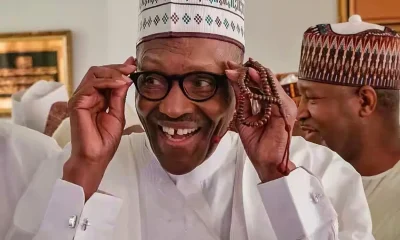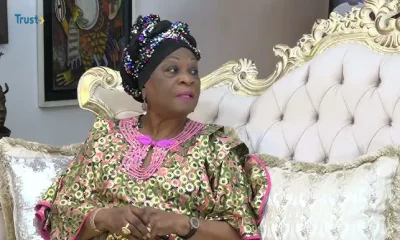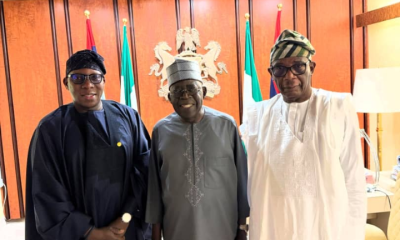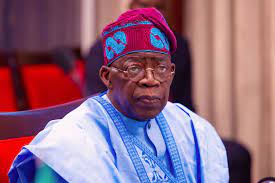Politics
Two Years of Tinubu: Are Nigerians Better Off? A Critical Analysis

Introduction: The Dawn of Renewed Hope
Two years into the administration of President Bola Ahmed Tinubu, Nigeria stands at a critical juncture, navigating a complex web of economic reforms and persistent security challenges. Having assumed office with the promise of “Renewed Hope,” the presidency has embarked on a series of bold, albeit often controversial, policy decisions aimed at resetting the nation’s economic trajectory and tackling entrenched insecurity. This analysis will critically examine the economic situation, the administration’s key economic and fiscal policies, and the evolving security landscape, curating the diverse perspectives of prominent Nigerians, political parties, international organizations, and local civil society groups to assess whether, after two years, Nigerians are indeed “better off.”
I. Economic Situation: A Tumultuous Landscape
President Tinubu inherited an economy grappling with significant headwinds: high inflation, a complex multiple exchange rate regime, declining oil production, and substantial debt. His administration’s initial policy pronouncements, particularly the immediate removal of the fuel subsidy and the unification of the foreign exchange market, sent immediate shockwaves through the economy, leading to both intended and unintended consequences.
Inflation: The most immediate and palpable impact on ordinary Nigerians has been the surge in inflation. While the National Bureau of Statistics (NBS) reports have shown a consistent upward trend, reaching multi-decade highs, the cost of living has become a dominant concern. Food inflation, in particular, has disproportionately affected households, eroding purchasing power and pushing more people into poverty.
Exchange Rate Volatility: The unification of the exchange rate, while lauded by some as a necessary step towards a market-driven economy, initially led to a precipitous depreciation of the Naira against major international currencies. This volatility has impacted businesses, increased the cost of imports, and further fueled inflation. While there have been recent periods of Naira appreciation, the overall trend over the two years has been one of significant devaluation from the pre-Tinubu era.
GDP Growth: Economic growth has remained modest, struggling to keep pace with population growth. While the government points to efforts to attract foreign direct investment and boost non-oil sectors, the inflationary environment and high cost of doing business continue to pose significant hurdles.
Unemployment and Poverty: Despite government efforts to create jobs, unemployment rates remain stubbornly high, particularly among the youth. The economic reforms, in their initial phases, have exacerbated poverty for many, with social safety nets struggling to cushion the impact adequately.
II. Economic and Fiscal Policy: Bold Reforms, Mixed Outcomes
The Tinubu administration’s economic and fiscal policies have been characterized by their boldness and a clear departure from previous approaches, aiming for fiscal sustainability and market liberalization.
Fuel Subsidy Removal: This was arguably the most impactful and immediate decision. The government argued it was a necessary step to free up funds for critical sectors and eliminate a drain on national resources. While it led to a significant increase in fuel prices and transport costs, the government has pointed to increased allocations to states from the Federation Account Allocation Committee (FAAC) as a direct benefit. However, the palliatives introduced to cushion the effect have been widely criticized as insufficient and poorly implemented.
Exchange Rate Unification: The decision to float the Naira and unify the exchange rate was aimed at attracting foreign investment, improving liquidity in the FX market, and removing arbitrage opportunities. While the initial period saw significant volatility and depreciation, the government believes this policy will lead to long-term stability and a more competitive economy. Critics, however, point to the immediate negative impact on import-dependent businesses and the cost of living.
Tax Reforms and Revenue Drive: The administration has signaled a strong intent to broaden the tax base and improve revenue collection. Efforts include streamlining tax administration and reviewing existing tax laws. The goal is to reduce reliance on oil revenues and improve fiscal self-sufficiency.
Monetary Policy: The Central Bank of Nigeria (CBN), under new leadership, has adopted a more hawkish monetary policy, significantly raising interest rates to combat inflation. This approach aims to curb money supply and stabilize prices, but it also increases borrowing costs for businesses and individuals.
III. Security Situation: Persistent Threats, Evolving Strategies
Nigeria’s security landscape remains complex and challenging, with various threats persisting across different regions. The Tinubu administration inherited a multifaceted security crisis, including insurgency in the Northeast, banditry and kidnapping in the Northwest and North-Central, communal clashes, and oil theft in the Niger Delta.
Insurgency (Boko Haram/ISWAP): While the military has continued “Operation Hadin Kai” (the military’s ongoing counterinsurgency effort deployed by the Army in the North-East region), the threat from Boko Haram and ISWAP remains, albeit largely contained to specific areas. The recent Giwa Barracks explosion, attributed by the Army to “current high temperatures in Maiduguri, which led to the explosion of some munitions,” highlighted unexpected vulnerabilities within military installations themselves, even if not an enemy attack.
Banditry and Kidnapping: These threats have escalated significantly, particularly in the Northwest and North-Central regions, impacting agriculture, education, and daily life. The widespread nature of kidnapping for ransom has become a major concern for citizens.
Oil Theft: In the Niger Delta, oil theft continues to be a major challenge, significantly impacting national revenue despite efforts to curb it.
Administration’s Approach: The government has emphasized a multi-pronged approach, combining military operations with non-kinetic strategies, intelligence sharing, and community engagement. However, the effectiveness of these strategies in significantly reducing incidents across all threat vectors is still a subject of debate.
IV. Different Reactions
Many prominent Nigerians, including business Leaders have acknowledged the necessity of the economic reforms, particularly the fuel subsidy removal and FX unification, as painful but crucial for long-term stability. They often call for patience and effective implementation of palliatives. ble.”
While some offered cautious support, others have, however, expressed concerns about the speed and sequencing of reforms, particularly regarding their impact on the poor.
The All Progressives Congress (APC}, Nigeria’s ruling party, has consistently defended the administration’s policies as courageous and essential for the nation’s future, emphasizing the inherited challenges and the long-term vision.
According to the party, “President Tinubu has demonstrated unprecedented courage in taking on challenges that previous administrations shied away from. The reforms are bitter pills, but they are vital for Nigeria’s economic recovery and sustainable growth.”
However, opposition Parties, especially the Peoples Democratic Party { PDP} and the Labour Party have frequently criticized the administration for the escalating cost of living, the depreciation of the Naira, and the perceived increase in hardship. They often accuse the government of lacking empathy and failing to provide adequate relief.
“Nigerians are suffering under the weight of these policies. The ‘Renewed Hope’ agenda has brought renewed hardship, and the government appears disconnected from the realities faced by ordinary citizens”, a Labour Party chieftain lamented.
For the International Monetary Fund {IMF} and the World Bank, the President Bola Tinubu administration deserves praise for its “bold reforms” like the fuel subsidy removal and exchange rate unification, viewing them as positive steps towards macroeconomic stability and attracting investment.
They have, however, most times, coupled this praise with calls for robust social safety nets and continued structural reforms. An IMF representative noted, “We commend Nigeria’s decisive steps towards fiscal sustainability and a more market-driven exchange rate. However, it is crucial to implement strong social protection measures to mitigate the impact on vulnerable populations.”
Civil and human Rights Organizations like Amnesty International, have raised concerns about human rights implications of security operations, civic space, and the impact of economic policies on vulnerable populations. Their reports typically focus on the need for accountability and adherence to human rights standards, especially in a damning report recently by Amnesty, detailing what it called large scale killings under the Bola Tinubu administration.
V. Overall Assessment and Conclusion: Are Nigerians Better Off?
Assessing whether Nigerians are “better off” after two years of President Bola Ahmed Tinubu’s presidency is a complex question with no simple answer. The administration has undeniably taken bold and long-postponed economic decisions, particularly the fuel subsidy removal and exchange rate unification, which many economists deem necessary for the nation’s long-term fiscal health and economic competitiveness. These reforms have indeed led to increased government revenue at the federal and state levels, potentially creating fiscal space for investments in critical sectors.
However, the immediate impact on the average Nigerian has been undeniably harsh. The precipitous rise in inflation and the significant depreciation of the Naira have severely eroded purchasing power, leading to widespread hardship and an increase in poverty levels. The promised palliatives have largely been perceived as insufficient or poorly implemented, failing to adequately cushion the economic shock for the most vulnerable.
On the security front, while the administration has maintained military pressure on insurgents and bandits, the overall security situation remains a significant concern for citizens. Kidnapping for ransom has become more pervasive, and various forms of insecurity continue to impede economic activities and daily life across different regions.
In conclusion, while the Tinubu administration has laid the groundwork for what it hopes will be long-term economic stability through courageous reforms, the immediate reality for many Nigerians is one of increased economic strain and persistent insecurity. The “Renewed Hope” has, for a significant portion of the populace, translated into “renewed hardship.” The coming years will be crucial in determining if the foundational, albeit painful, reforms translate into tangible improvements in the lives of ordinary Nigerians, or if the initial sacrifices prove too heavy a burden without commensurate benefits. The success of this presidency will ultimately be measured not just by policy pronouncements, but by the tangible improvement in the living conditions and security of its citizens.
Kindly contact us @ info[@]wordspired.com.ng
Call or Whatsapp: +234 803 951 2443, +234 902 474 4290
-

 News5 years ago
News5 years agoOmar Bolaji Gambari: The new Mr. Fix It in Aso Rock?
-

 News5 years ago
News5 years agoYou are in trouble, Shekau threatens Chadian President Idris Deby
-

 News5 years ago
News5 years agoMaryam Onikijipa-Belgore: Living an Impactful Life for the Downtrodden
-

 Entertainment5 years ago
Entertainment5 years agoAfro fusion act TYMZY set to excite music fans with debut collection
-

 Entertainment5 years ago
Entertainment5 years agoSaidi Balogun’s latest movie White/Funfun hits the market, making waves on YouTube
-

 News5 years ago
News5 years agoDutch top football league may be cancelled
-

 News5 years ago
News5 years ago“Ego is the major problem affecting Yoruba race” – Oba Frederick Akinruntan
-

 Entertainment5 years ago
Entertainment5 years agoFunke Akindele, JJC Skillz sentenced to 14-day community service





















